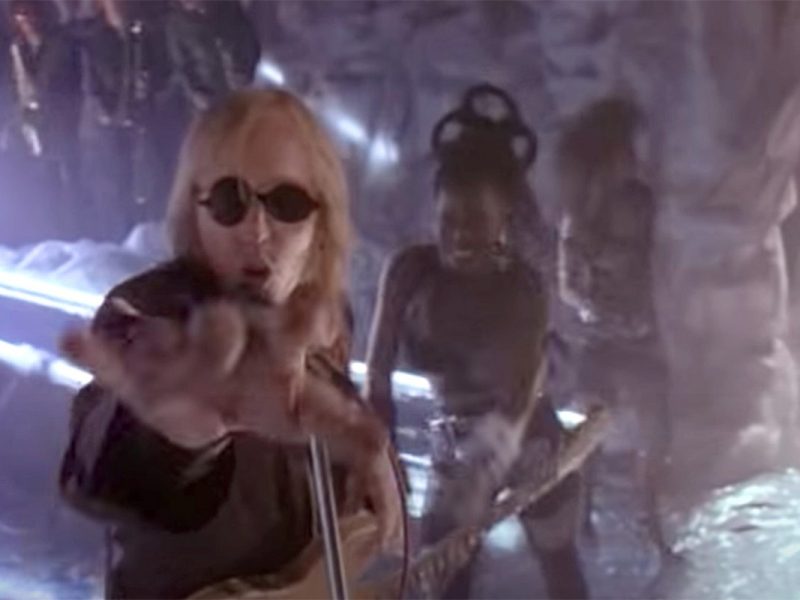The Rolling Stones were the model of constancy as the holiday season approached in 1992. Their most recent lineup change had been nearly two decades earlier, when Mick Taylor was replaced by Ron Wood.
In the interim, Bill Wyman had simply continued as before, extending as a steady rhythm-section presence alongside Charlie Watts that began in 1962. It seemed as if Keith Richards had been right: “No one leaves this band unless they’re in a wooden box.”
Behind the scenes, however, Wyman had other ideas. He was older than the others, already a family man when he joined, and he had no credible reason to believe that he’d still be at this into late middle age.
“None of us expected the Stones to last more than a couple of years,” Wyman told the Los Angeles Times in 2019. “Neither did the Beatles. Neither did the Animals or the Hollies.”
On some level, the Rolling Stones camp couldn’t have been shocked by his pending exit. After all, Wyman had declined to take part in a new six-year, $44 million contract they’d recently signed with Virgin Records. “I think Bill’s kind of had enough of it all, really,” Mick Jagger surmised back then. “I guess he just doesn’t want to do any more.”
Murmurs that the tour in support of 1989’s Steel Wheels would be his last were already rampant. It had been the biggest yet, and Wyman suddenly found himself shrinking from the intensifying spotlight.
“Playing with the Stones, there was always such a lot of pressure,” Wyman told the Telegraph in 2008. “The next album or single always had to be the best, or at least sell more. When we got together to play it was a great moment. Working with Charlie was fantastic, and we’re still really close – but when I toured with the Stones it would take a month to practice all these songs we’d been playing for 30 years.”
Keith Richards Discusses What Makes Bill Wyman So Special
Jagger and Richards initially refused to accept Wyman’s resignation, offering instead to give him time to think it over. Then someone on MTV pressed Jagger about the situation on Dec. 3, 1992: “We are looking for a new bass player,” Jagger casually replied.
He remained aloof, even while confirming that the foundation of the Rolling Stones just shifted. “Bill has decided he doesn’t want to carry on for whatever reasons,” Jagger added. “You’d have to ask him why. I don’t think it will really faze us too much. We’ll miss Bill, but we’ll get someone good.”
Similar conversations were held behind closed doors, as a chill set in. “When I first left the Stones, it took a few months to rebuild that relationship with them,” Wyman told the Telegraph. “It was quite stressful and they didn’t want me to leave, so they became bitchy. Instead of being nice and saying ‘great 30 years; cheers, mate,’ Mick would say the most absurd, stupid things, with that spoiled attitude he had. He’d say things like, ‘Oh well, if anybody has to play bass I’ll do it. It can’t be that hard.'”
Back on MTV, Jagger had actually invited viewers at home to submit their own names “if you think you could fit the bill.”
The Stones eventually returned to Wyman, hat in hand. “They left the door open for me for two years,” he later remembered. “Charlie and Mick would phone and say, ‘You’re not really leaving are you? Have you re-thought it?'” Quite frankly, he hadn’t.
Pressure didn’t really begin to mount, however, until the Rolling Stones began turning their attentions to the next big tour. “Mick and Charlie came around in the evening and had a meal with me and said, ‘Have you left?'” Wyman told the Los Angeles Times. “I said, ‘I left two years ago!’ They weren’t very happy about it.”
The crest-fallen Richards didn’t want to face it, either. “A rhythm-section change in a band is a heavy-duty number,” he told MTV. “It’s totally up to Bill. If he doesn’t want to do it, it’s his decision. I don’t want a reluctant guy on the road.”
Daryl Jones was officially announced as the Rolling Stones’ new bass player in March 1994, after having sat in on sessions for the group’s forthcoming album, Voodoo Lounge. Their tours kept getting bigger, while Wyman assembled a rotating ensemble called the Rhythm Kings to play more intimate dates.
Bill Wyman On His Huge Collection of Rolling Stones Memorabilia
“I had a small nest egg and I can live nicely, but I can’t rely on Stones royalties to support me,” Wyman told the Telegraph. “I have to work and I’m not in the same league as the boys who stayed on.”
Still, he found this smaller-scale setting suited him, both personally and musically. Special guests with the Rhythm Kings included Peter Frampton, George Harrison, Mark Knopfler, Ringo Starr and even his old Rolling Stones bandmate Mick Taylor. But Wyman limited the principal lineup to closer confidantes, and they never traveled further than a train, bus or ferry ride away.
“Have I had any regrets about not going back?” Wyman would subsequently muse. “None whatsoever.”
Wyman has also leveraged his sweeping collection of memorabilia to start a Rolling Stones-themed restaurant called Sticky Fingers, and to create a fascinating historical chronicle of the band. He dabbled in archaeology, photography and painting too.
Of course, the Rolling Stones remained a specter in his life. Controversy brewed in 2005 when Wyman’s image was removed from archival photos on the sleeve for the Rarities retrospective. (He told the Telegraph it was “disappointing and petty, but I don’t know whose decision that was. I don’t bring those things up.”) They later invited Wyman to perform on stage during the band’s gala 50th anniversary tour.
He elected to take part, only to be surprised when the Stones declined to extend the reunion for more than two songs a night during a pair of 2012 concerts at London’s 02 Arena. “They wouldn’t let me do any more,” Wyman told the Los Angeles Times. He didn’t follow the tour into America, deciding it wasn’t worth the hassle. Besides, he added, “it’s very difficult to go back and relive something.”
In the end, he said whatever wounds remained have long since healed. “They didn’t want me to leave, but we get on great now,” Wyman told the Telegraph. “I had 30 great years with them, then a really nice divorce – and, corny as it may sound, we are still family.”
Top 40 Blues Rock Albums
Inspired by giants like Muddy Waters, Robert Johnson and B.B. King, rock artists have put their own spin on the blues.
Real-Life ‘Spinal Tap’ Stories: Rolling Stones



